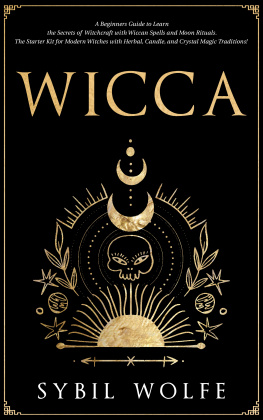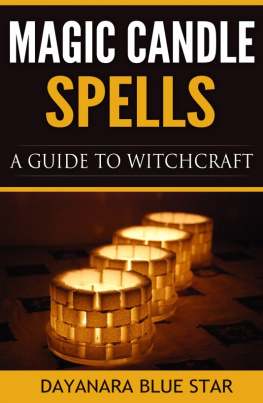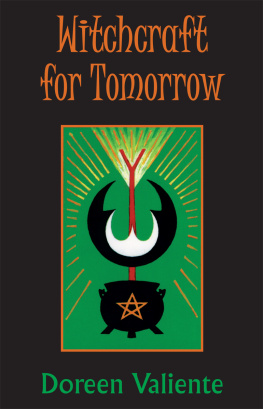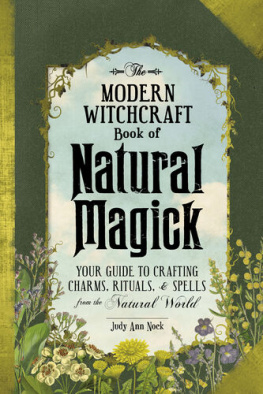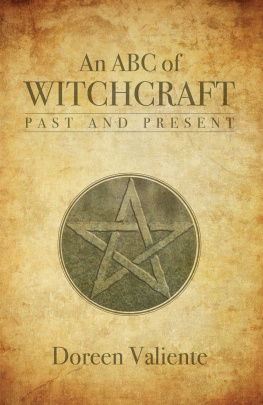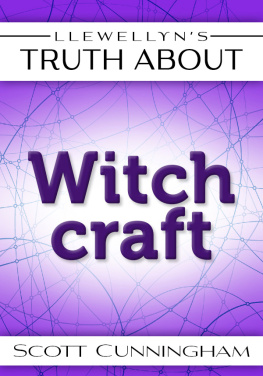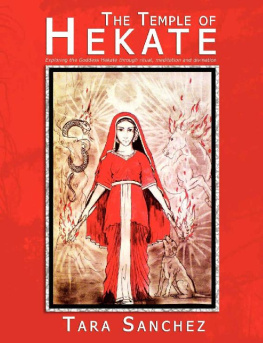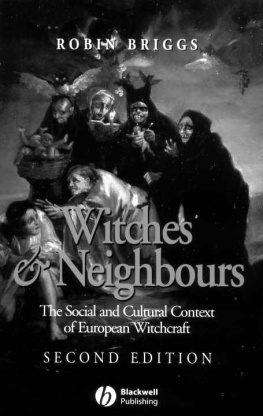Introduction
In the summer of 2005 , my colleague Iulia Hossu and I were b e ginning our doctoral field research projects in the village of R ca in the Apuseni Mountains of western Romania. My research at the time was focused on ritu als of defense and protection that are part of religious celebrations and seasonal crossings. Armed with carefu l ly selected theories and sharp analytical distinctions, we presented the scope and purpose of our investigations to our neighbor and f u ture key informant Rodica (woman, age 53). She nodded approvingly and said she would be glad to help but then gave us a stark and unexpected warning:
You have to be careful about what you ask and how you ask it. Dont you e v er, by any chance, start asking about those things . If you do, people will start thinking that you are actually seeking some sort of spells or whatnot. And if thats the talk in the village, nobody will ever talk to you. You can count on it.
This announcement was a big surprise to me. At that time, I could not imagine any direct connection between our research su b jects and those things, by which Rodica meant the ma g ic/witchcraft discourse. This warning made very clear to me the e x tent of the difficulties that come with open-field inquiries on witc h craft. Especially in rural Romania, ethnologists who research mag i cal interventions are perceived as suspect individuals, and it is near-impossible for them to establish community contacts. As Dominique Camus wrote in the context of his research in rural France, the ethnologist is perceived as someone who comes to seek power. This relates to the very staging of witchcraft. There is no space for an innocent inquirer B e cause magic is praxis , the only imaginable purpose of talking about it is to acquire magical knowledge that can subsequently be put into effect. In a discourse universe where talking necessarily means a l ready acting or preparing to act, protected by strict guidelines of t a boos and secrecy, the gathering of information for its own sakeso intrinsic to any anthropological researchcomes as something completely foreign, parallel, and contrary to the witchcraft di s courses internal logic.
Three years later, my research focused exclusively on those things. the contemporary manifest a tions of the witchcraft discourse throughout Europe, its forms, fun c tions, a nd regional traits still require a great deal of further fiel d work and theoretical considerations . It is entirely possible that soc i ocultural phenomena relevant to the witchcraft discourse are co m pletely absent in some European regions. It is equally possible that they are more present in Europe than suggested by contemporary social sciences research, simply because the efforts were not made to record them. Whatever the case may be: where, how, and why they do function can offer valuable insights into those contemporary European practices and mentalities that can be individually a c cessed, in times of need, as strategies of warding off adversity.
The majority of studies of witchcraft in contemporary Europe f o cus on New Age, neo-pagan, Wiccan practices, and beliefs, when a vast category of r e ligious/magical/mystical/occult concepts inspired by Western thought started to be circulated in the media. Actual beliefs and practices in post-communist Romania may incorporate idiosyncratic elements of ancient rural magic and mentalities, religious orthodox practice, modern and urban divination techniques, and pseudosc i entific explanations that follow New Age concepts or a belief in the paranormal. Although the span and impact of these new concepts are significant and their emergence in the media probably enabled the reinvigoration of witchcraft discourse in post-communist Rom a nia, the underlying pattern of todays witchcraft accusations conti n ues to be decidedly rural-traditional.
If neo-paganism can be described as an amalgamate of various forms of new (religious) spiritualties, accessed individually in the name of personal evolution and spiritual growth, the rural-traditional witchcraft discourse represents a type of diagnosis r e served only for times of extreme duress, when all the other explan a tory systems have failed to offer viable solutions. Entering this type of discourse does not represent, for the actors, a time for spiritual enlightenment or for gaining a deeper meaning of life. It represents a state of all-consuming war best synthesized, following Willem de Blcourt, as misfortune ascribed to other human beings In contrast, entering a witchcraft discourse does not play out as a fashionable choice or an informed spiritual decision, nor is it an i n dividual quest. Dictated by stringent need rather than choice, the witchcraft diagnosis stems from a preexistent traditional code of i n terpreting unhappiness that is community based and usually a c cessed through the suggestions made by a third-party incidental d i agnostician. In short, entering a witchcraft discourse represents a period of marked crisis in someones life, one that s / he is most e a ger to solve (heal) and then leave behind.
The pragmatics of traditional rural witchcraft in Europe is mai n ly based on what Liiceanu called a favorability transfer: a vital force set in motion through magical forces, resulting in a winning and a losing side. Economic prosperity, marital success, beauty, and health are all considered forms of vital surplus, susceptible of causing envy and vulnerable to attempts of hijacking through spells and charms. The witchcraft discourse of contemporary Romania fo l lows these same general lines, with one significant variation: The r a ther pragmatic surplus stake seems to have lost its relevance, co n sidered less and less a reason for a presumed witchcraft attack. I n stead, the actors point to feelings: The suspected magical aggressors are supposedly motivated by pure hate or vengefulness rather than greed, with nothing else to gain from the spell except personal sati s faction out of causing unhappiness. This variation may reflect the modern recontextualization of the witchcraft discourse within urban settings, as well as a marked simplification of the aggressor pole under the influence of the Orthodox religious discourse.
However, the (re) invention of spiritual traditions not as the erosion of the a u thority of science. We do live in a secularized world in which the sc i entific discourse remains the dominant paradigm and rationalistic pragmatism defines the everyday province of meaning.
Researching the Witchcraft Discourse
This study is based on ethnographic material from field r e searches that I undertook in parts of Northern Transylvania b e tween 2005 and 2009. The fieldwork material is mainly discursivethat is, it takes the form of discourses about witchcraft, victims, sorcerers, and spells. Therefore, the material substantiating this study consists mainly of narratives: memories, opinions, stories and happenings, suspicions and accusations, gossip and rumors, re c ommended remedies, and steps to be followed. It was supplemented by information gleaned through visiting professional fortune tellers, often as a client, and attending religious services dedicated to hea l ing interventions. The field material revolves around the victims perspectives. Consequently, my theoretical approach is focused on the view of the accuser rather than the accused . Although the red thread of this book is a spatially localized case study examining one contemporary form of witchcraft discourse, my aim is to open up and contextualize the data by encompassing, whenever possible, relevant comparative European material of both contemporary and historical characters.
On the basis of the Romanian research material, the following chapters of this study will address four main questions:


